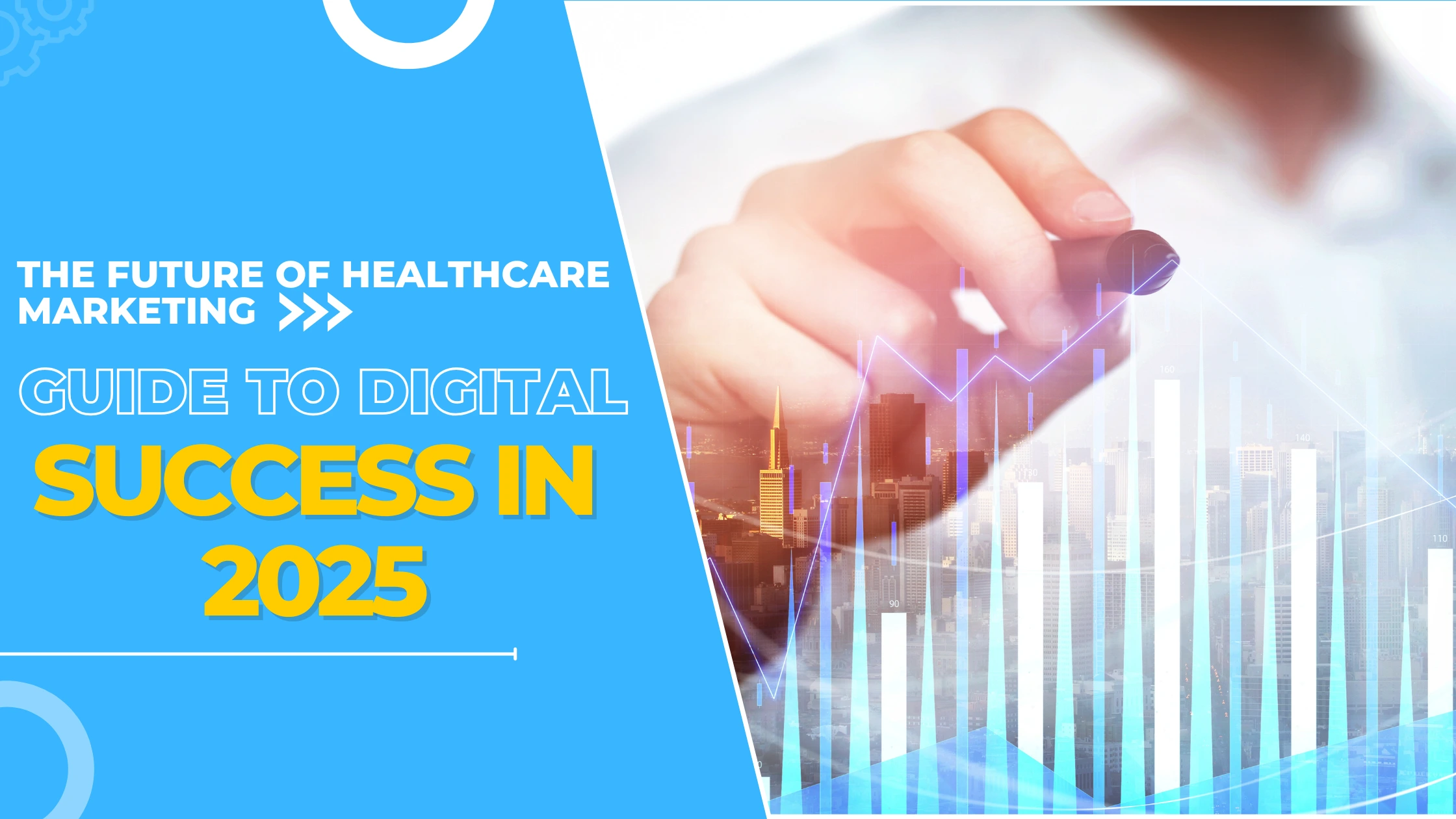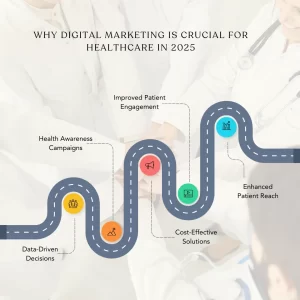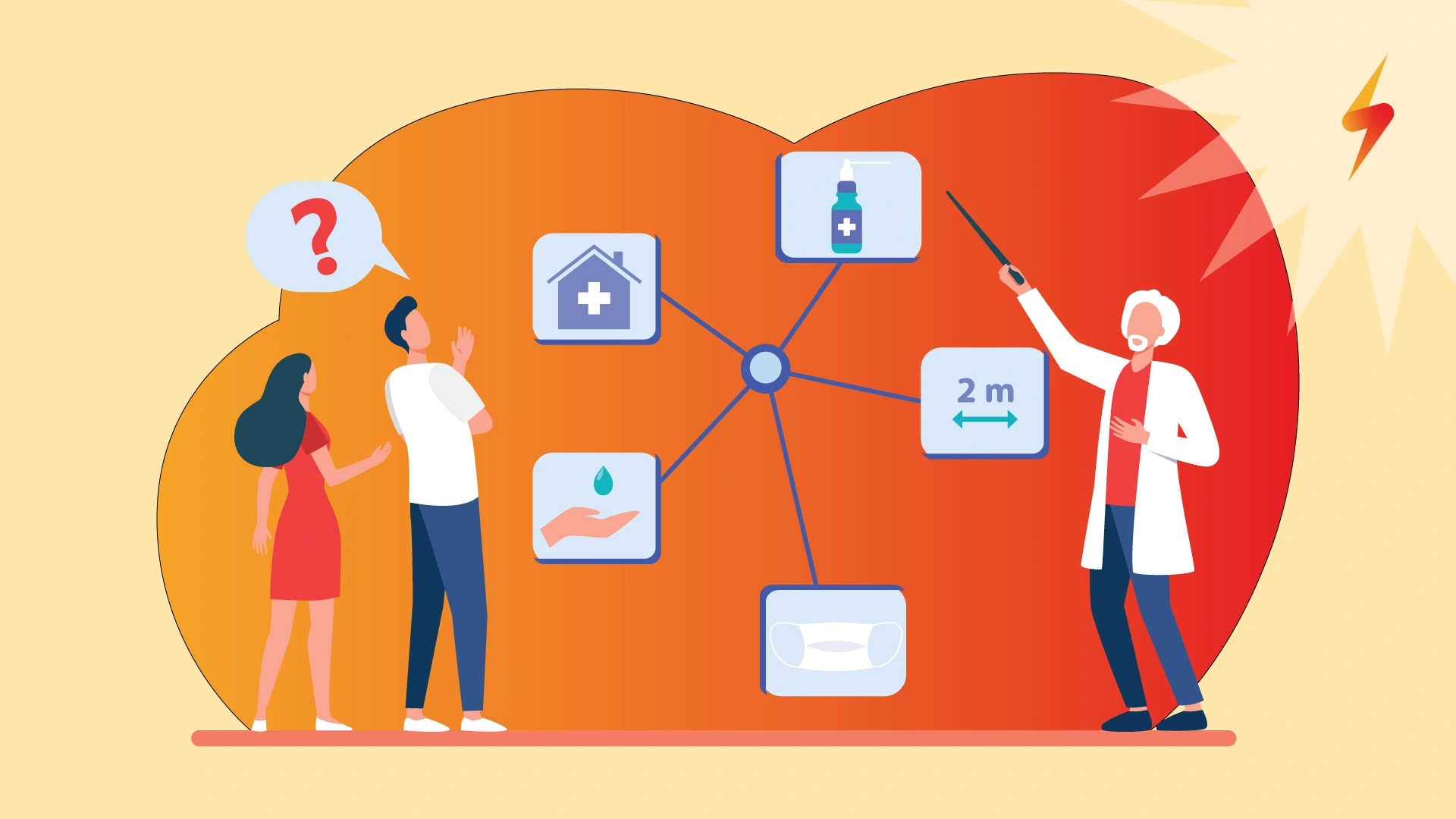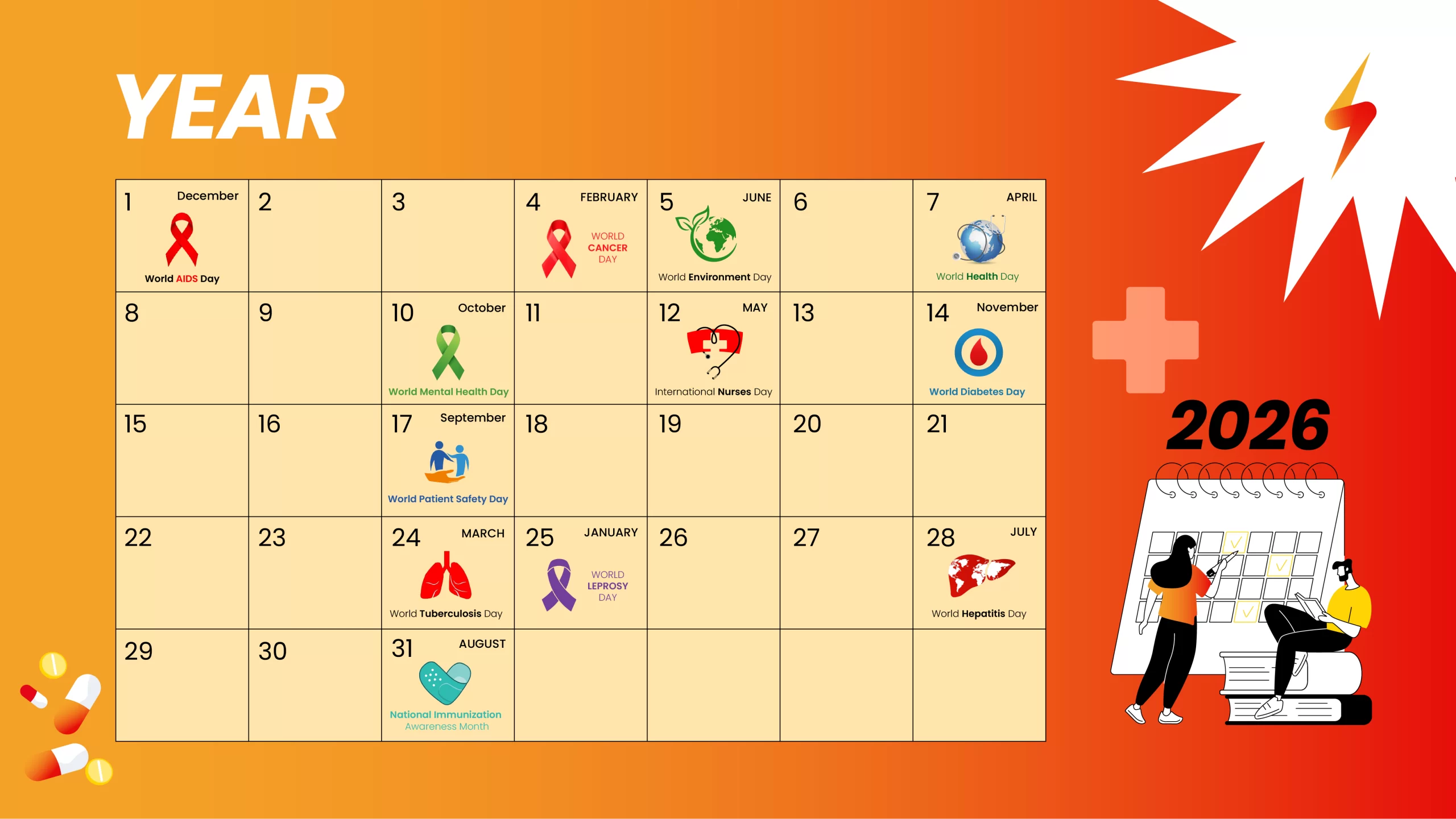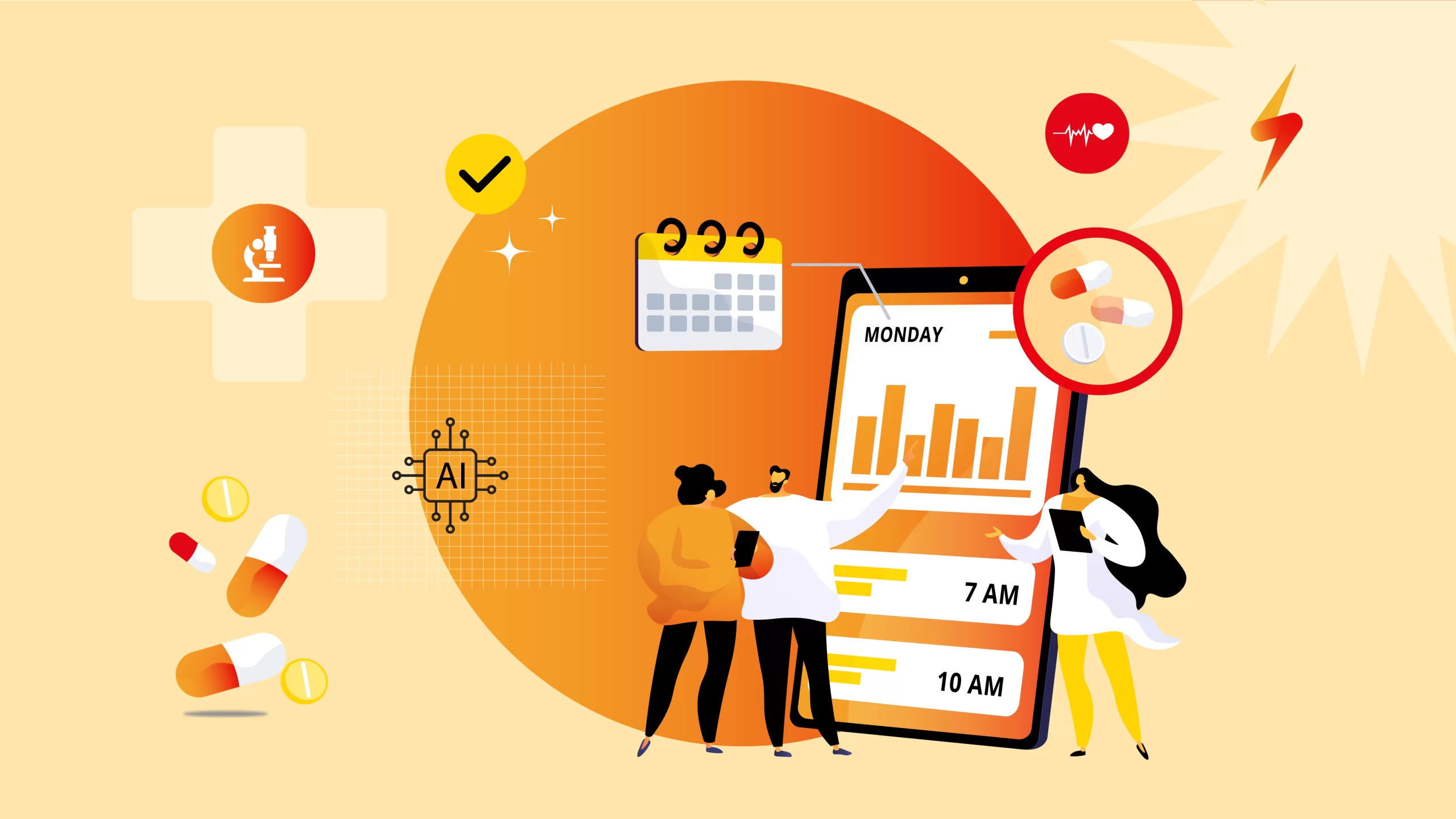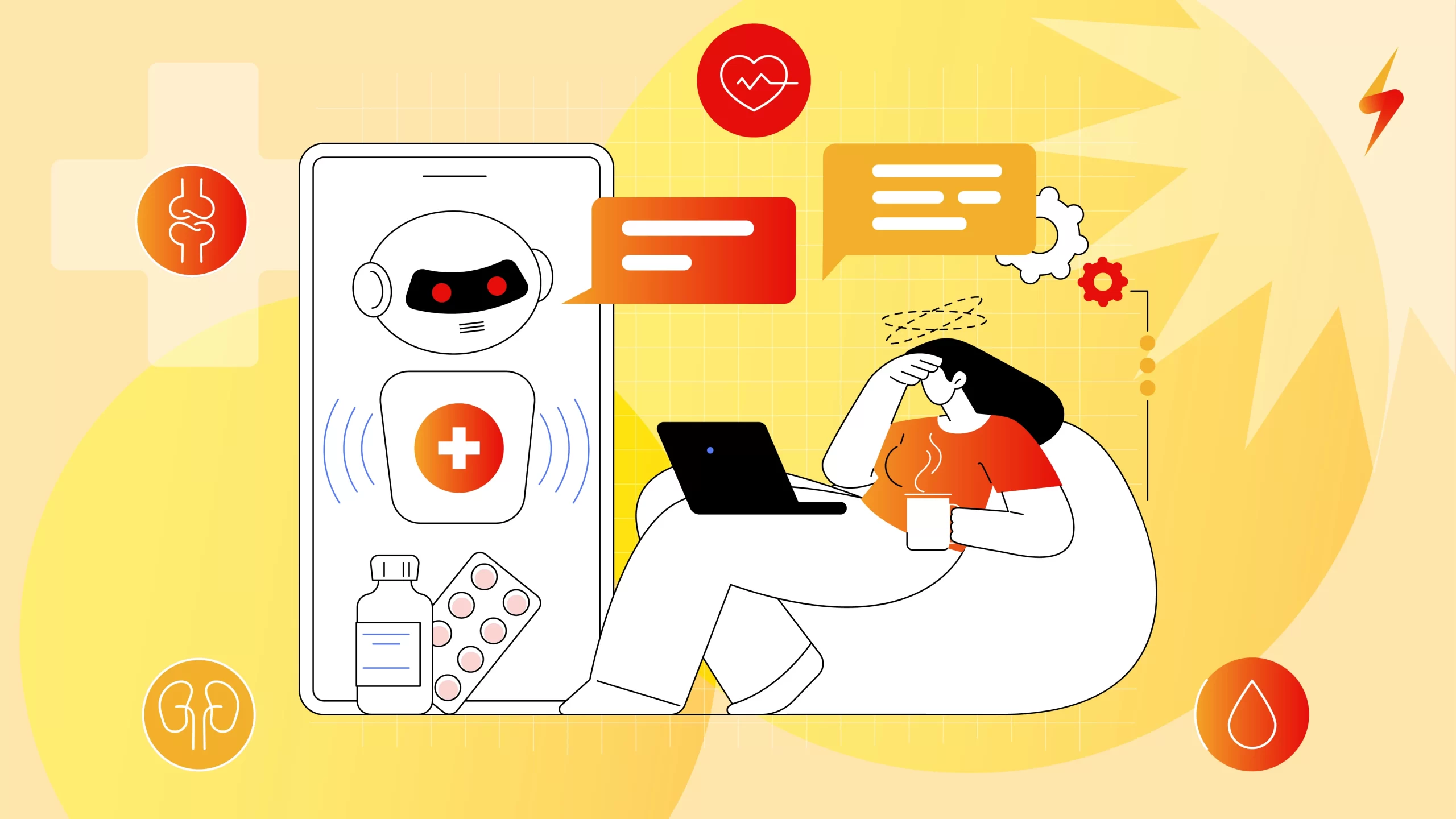Table of Content:
- What is Digital Marketing in Healthcare?
- Why Digital Marketing is Crucial for Healthcare in 2025
- Effective Digital Marketing Strategies for Healthcare in 2025
- Modes of Digital Marketing for Healthcare
The year 2025 marks an era of heightened digital dependence across all industries, and healthcare is no exception. As the digital-first mindset continues to grow, healthcare organizations need to adopt robust digital marketing strategies to stay ahead of the curve. At Synapse Marketing Consultancy, a premier healthcare advertising agency, we understand the nuances of the industry and the importance of aligning marketing efforts with the evolving digital landscape. This comprehensive guide takes you through the road map for successful digital marketing in healthcare in 2025, addressing the what, why, and how of digital strategies tailored for the healthcare industry.
What is Digital Marketing in Healthcare?
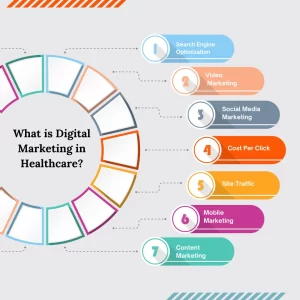
Digital marketing in healthcare leverages online platforms, tools, and strategies to connect with patients, healthcare professionals, and stakeholders. Unlike traditional marketing, digital marketing offers:
- Personalized and data-driven campaigns.
- Real-time interactions across platforms.
- Enhanced reach, especially among tech-savvy younger audiences. For a pharma advertising agency or healthcare organization, digital marketing goes beyond simple advertisements. It involves leveraging the right platforms to build credibility, educate, and foster relationships that result in trust and action.
Why Digital Marketing is Crucial for Healthcare in 2025
Digital marketing isn’t a luxury any more it’s a necessity. Here’s why healthcare brands need to embrace it:
- Patient-Centric Behavior
Patients today are more proactive and informed about their healthcare decisions, with many turning to the internet as their first resource for medical advice, finding doctors, and exploring treatment options. This shift emphasizes the need for healthcare providers to:
• Establish a Strong Online Presence: A user-friendly, informative website and active social media profiles are critical for credibility.
• Optimize for Search Engines (SEO): Ensuring your services appear prominently in search results when patients seek specific conditions or treatments.
• Provide Valuable Content: Blogs, videos, and FAQs addressing common health concerns build trust and position your brand as a reliable source of information. - Multi-Channel Communication
Engaging with patients across various platforms is essential to meet their preferences and needs. Multi-channel communication strategies include:
• Social Media: Sharing educational content, patient testimonials, and wellness tips to foster engagement.
• Telemedicine Apps: Integrating marketing efforts into telemedicine platforms, where patients increasingly seek care.
• Messaging Platforms: Utilizing tools like WhatsApp or SMS for appointment scheduling and personalized health updates. - Competitive Edge
The digital healthcare landscape is rapidly evolving, with start-ups introducing innovative models for care delivery. To remain competitive:
• Invest in Differentiation: Showcase what sets your brand apart, such as advanced technology, expert care, or specialized services.
• Embrace Emerging Trends: Adopt innovations like AI-powered chatbots, online appointment booking, and health-tracking apps to offer seamless patient experiences.
• Build Trust: Digital platforms offer a space to display certifications, patient reviews, and success stories, reinforcing your brand’s credibility. - Regulatory-Compliant Outreach
Digital marketing in healthcare must navigate stringent regulations to ensure ethical and lawful practices. Leveraging digital platforms allows for:
• Targeted Advertising: Using demographic data to reach specific audiences without violating privacy norms.
• HIPAA-Compliant Campaigns: Crafting secure and private communications that adhere to data protection standards.
• Educational Content: Promoting health awareness without breaching advertising rules or making unfounded claims. - Enhanced ROI Tracking
One of the significant advantages of digital marketing is its measurability, enabling healthcare providers to:
• Analyze Campaign Performance: Tools like Google Analytics, social media insights, and email metrics help assess engagement and conversions.
• Optimize Spending: Real-time data allows marketers to adjust campaigns for better cost-effectiveness.
• Demonstrate Value: Clear metrics provide insights into how digital marketing efforts drive patient acquisition and retention, ensuring a higher return on investment.
In 2025, healthcare organizations that fail to embrace digital marketing will risk losing relevance in a digitally native market.
Effective Digital Marketing Strategies for Healthcare in 2025
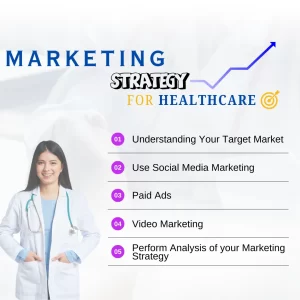 • Patient Education through Content Marketing
• Patient Education through Content Marketing
1. Publish blogs, videos, infographics, and e-books addressing common patient questions and healthcare trends.
2. Optimize search engines with healthcare SEO strategies to ensure patients can easily find your content.
• Multi-Channel Marketing for HCP Engagement
1. Use email newsletters, webinars, and digital brochures to deliver targeted campaigns.
2. Leverage AI-driven analytics to tailor content specifically for healthcare professionals (HCPs).
• Social Media and Community Building
1. Platforms like LinkedIn and Instagram can create educational awareness campaigns or promote healthcare events.
2. Interactive Q&A sessions, patient testimonials, and behind-the-scenes footage build transparency and trust.
• Video Marketing
1. Produce engaging healthcare videos—ranging from patient stories to explainer animations.
2. Platforms like YouTube are powerful tools for both patient and HCP outreach.
• Programmatic Advertising
1. Use advanced targeting to serve ads to relevant audiences based on location, profession, or behavior.
• Search Engine Marketing (SEM) and Pay-Per-Click (PPC)
1. SEM can help your brand rank high for patient searches related to treatments, medications, or symptoms.
At Synapse, we believe that successful strategies are those that deliver a cohesive and engaging brand narrative across all platforms while maintaining a razor-sharp focus on compliance and audience engagement.
Modes of Digital Marketing for Healthcare
The possibilities in 2025 for healthcare digital marketing include:
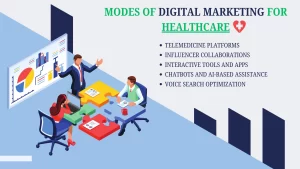 1. Telemedicine Platforms
1. Telemedicine Platforms
With the increasing adoption of online consultations, telemedicine apps, and portals have become prime marketing channels. Healthcare providers can use these platforms to:
- Promote their services through in-app advertisements.
- Offer exclusive telehealth packages or discounts.
Collaborate with telemedicine platforms for sponsored placements, ensuring better visibility among users searching for healthcare solutions.2
2. Influencer Collaborations
Influencer marketing in healthcare goes beyond traditional social media influencers:
- Healthcare Professionals: Doctors, therapists, and specialists can endorse products or services, lending credibility to campaigns.
- Wellness Bloggers: Fitness experts and nutritionists can promote preventive care or wellness-focused services.
- Patient Advocates: Real patients sharing their stories create authentic and relatable content that resonates with broader audiences.This strategy builds trust, especially in sensitive areas like mental health, chronic illness management, or surgical procedures.
- Interactive Tools and Apps: Interactive digital experiences help engage and educate patients while reinforcing brand value:
- Symptom Checkers: Help users assess potential health concerns, driving them to seek professional consultation.
- Health Trackers: Apps tracking vitals, medication adherence, or fitness goals can include subtle branding or promotional messages.
- Virtual Reality (VR) Experiences: VR can be used for patient education, such as explaining surgical procedures or offering virtual tours of healthcare facilities, enhancing trust and understanding.
4. Chatbots and AI-Based Assistance
AI-driven chatbots are revolutionizing patient interactions by:
- Providing instant responses to queries about appointments, services, or health concerns.
- Offering tailored health advice based on user input.
- Automating appointment scheduling, follow-ups, and reminders.
- Acting as a 24/7 virtual assistant, improving accessibility and patient satisfaction.
5. Voice Search Optimization
The growing use of voice-activated devices like Alexa, Google Assistant, and Siri demands a focus on voice search optimization:
- Ensuring healthcare websites and content are structured to answer voice queries effectively.
- Adopting natural language in SEO strategies to align with how users phrase voice searches.
- Optimizing for local voice searches, such as “nearest pediatrician” or “24-hour pharmacy near me,” to capture high-intent leads.By working with an expert healthcare advertising agency, brands can ensure that their strategies evolve with these changes while staying compliant with regulations.The digital transformation in healthcare marketing offers tremendous opportunities for creating meaningful, targeted, and impactful campaigns. As a pharma advertising agency, Synapse Marketing Consultancy specializes in creating multi-channel strategies that help healthcare brands engage, educate, and inspire their audiences.In 2025, don’t just embrace digital marketing—master it. Let Synapse guide your brand through this ever-evolving journey, helping you build trust, drive engagement, and achieve growth.

